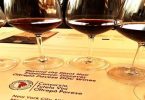QUANG NINH, Vietnam — Tour boats in Ha Long Bay, a newly voted world heritage site in the northern coastal province of Quang Ninh, have been banned from stopping at floating fishing villages during tours since the start of this month, according to the provincial People’s Committee.
Chairman of the committee Nguyen Van Doc said the move was aimed at preventing tourists from being disturbed, overcharged or even ripped off, which had become a common occurrence at private floating fishing houses.
Captains of vessels that violated the ban would have their licences revoked and refused permission to cruise around the bay the next day, he said.
Do Duc Thang, vice head of Ha Long Bay Management Board, said that the board had received many complaints from both international and domestic tourists about rip-off services and fraudulent activities at private fishing houses in the bay on its hotline.
“These fishing houses are temporarily set up in the middle of the bay by local residents. Some are established by residents from fishing villages. They all profit by selling seafood to tourists,” he said.
“They are not on the province’s registered seafood trading list and they are not a stop-off place for tours,” Thang said.
However, many boats ignore the ban and anchor at these fishing houses.
According to the board’s estimation, there are about 650 floating fishing houses scattered around the bay, and many have become a destination for tour boats, including Ba Hang, Cua Van, Vong Vieng and Cong Dam.
Thang said that Ba Hang was one of the worst places for overcharging tourists. Ba Hang is a temporary fishing village with more than 30 households, and most earn a living from aquaculture and farming, as well as selling snacks to tourists.
Chaos had broken out in recent times, with locals chasing after tour boats to sell seafood, he said. Last week, Pham Van Thuong, captain of a tour boat in Ha Long Bay, was attacked by two seafood sellers in Ba Hang Village when he tried to prevent them from coming aboard to sell seafood to foreigners. Thuong was hospitalised with multiple injuries.
Early this year, a tourist from Thailand was reportedly forced to pay VND11.5 million ($552) for a 6kg fish in Ba Hang Village.
Sellers even threatened to tie up the boat if he refused to pay.
To clamp down on the situation, the province has also established a tourism inspection force with the involvement of inspectors and police in tourism, environment, transport and construction.
However, the decision has yet to receive support from tourist enterprises and residents of fishing villages.
Tran Thi Hoa, tour manager of the Ha Long-based Thanh Nien Co Ltd, said that banning tour boats from fishing houses would not solve the problem.
“Overcharging can happen anywhere. We’ve heard complaints from tourists in Bai Chay Beach and the night market as well,” she said.
Hoa said the company had stopped mooring at floating fishing villages since early this month, but admitted that it made the trip less interesting.
“Visiting fishing houses, seeing different kinds of marine creatures and taking photos are among the leisure activities of our tourists. It’s much more interesting than seeing cooked seafood on the boat or seafood sold at the market,” Hoa said.
The company receives about 1,000 tourists to the bay annually, 40 per cent of whom are foreigners.
“It’s hard to say how the ban will affect our businesses as it is not peak season and it’s only two weeks since the ban took effect,” she said.
But for Do Van Huu, a resident in Ba Hang Village, no more tour boats means no food for her family of nine.
Huu said to Tuoi Tre (Youth) newspaper that he and his wife usually row small boats to take tourists to visit surrounding caves, and earned VND3 million ($144) per month.
Huu had to catch fish to earn money at night and his wife wove fishing nets. A whole night’s fishing only brought them enough food for one meal.
According to Thang, most households in the village are poor and their income from tourist activities only met their daily needs.
Jenna Allen, a US tourist, said she had been to Ha Long Bay twice and found floating houses quite interesting.
“It’ll be amazing to catch fish from the sea and cook it right after that. I’m pretty sure that they are all fresh,” she said.
However, Jenna said she didn’t buy anything from the floating villages because she was unsure about the price.
“I will never go back to a place if I’m ripped off,” she said.
According to Hoa, it would be better if authorities tightened control over floating fishing villages by registering them and requiring valid price lists.
“Floating restaurants could be a good place for tourists to enjoy while creating a stable income for residents,” she said.






















